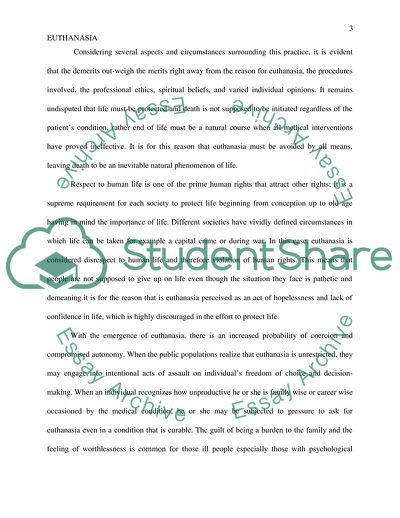Cite this document
(Why Euthanasia Is Unethical Case Study Example | Topics and Well Written Essays - 1750 words, n.d.)
Why Euthanasia Is Unethical Case Study Example | Topics and Well Written Essays - 1750 words. https://studentshare.org/medical-science/1858312-euthanasia-for-or-against
Why Euthanasia Is Unethical Case Study Example | Topics and Well Written Essays - 1750 words. https://studentshare.org/medical-science/1858312-euthanasia-for-or-against
(Why Euthanasia Is Unethical Case Study Example | Topics and Well Written Essays - 1750 Words)
Why Euthanasia Is Unethical Case Study Example | Topics and Well Written Essays - 1750 Words. https://studentshare.org/medical-science/1858312-euthanasia-for-or-against.
Why Euthanasia Is Unethical Case Study Example | Topics and Well Written Essays - 1750 Words. https://studentshare.org/medical-science/1858312-euthanasia-for-or-against.
“Why Euthanasia Is Unethical Case Study Example | Topics and Well Written Essays - 1750 Words”. https://studentshare.org/medical-science/1858312-euthanasia-for-or-against.


